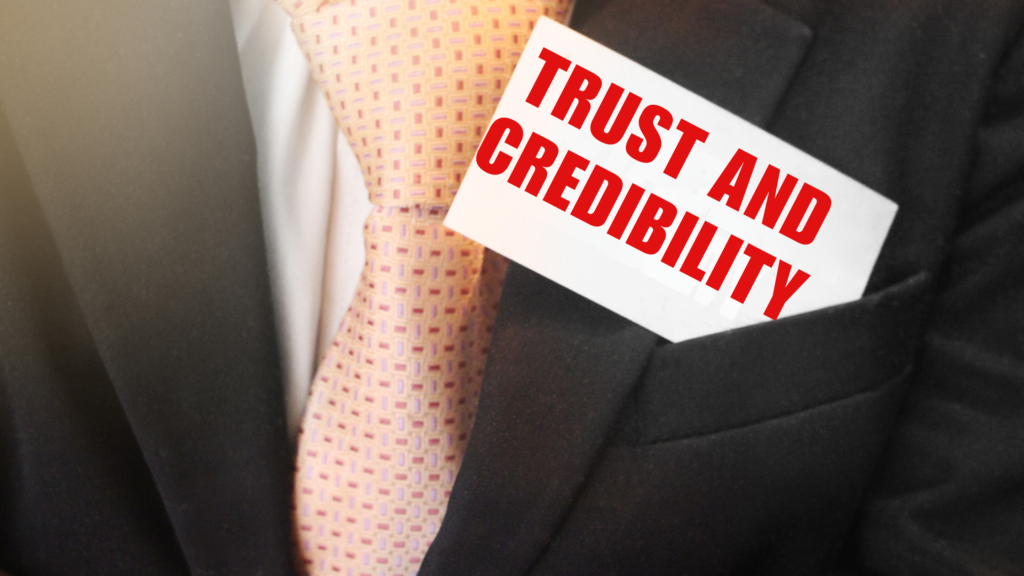The success of any B2B sales strategy hinges on the quality of the data used to reach potential clients. To get the most out...
Personal branding has a great deal of power and impact on B2B sales.
Building a strong personal brand is becoming essential in today’s cutthroat business environment rather than optional.
By defining your brand, you may stand out from the competition and draw in the right clientele.
In the end, personal branding in B2B sales is powerful because it can create enduring connections and spur corporate expansion.
In this article, we’ll explore the benefits of personal branding and how it can change your B2B sales approach.
What is Personal Branding?
Personal branding is the deliberate process of shaping and controlling how you are perceived in a professional context. It entails recognizing and highlighting your distinctive strengths, values, and expertise to connect with your intended audience.
Just as how businesses construct brands to establish their image and draw in customers, individuals can cultivate their personal brands to elevate their professional standing and attract favorable opportunities.
The Link Between Branding and B2B Sales
In sales, having a strong brand is like having a valuable ally supporting you as a salesperson. Unlike B2C where smaller amounts are involved, B2B deals often mean larger sums of money. This makes it super important that your brand is seen as trustworthy and serious.
As a salesperson in B2B, you’ve got to fully represent your company’s brand. This includes things like price lists, one-page documents, presentations, and more. Having good personal branding in B2B sales is also about showing a high level of commitment and a professional attitude.
The Significance of Personal Branding in B2B Sales Success
In the realm of B2B sales, establishing a robust personal brand is pivotal for capturing your audience’s attention. Crafting a distinct personal brand not only sets you apart from competitors but also positions you as an authority in your industry. This enhances your likelihood of securing deals and opens doors to new avenues for advancement and success in the fiercely competitive B2B market.
1. Establishing Trust and Credibility

Consistency in messaging across various platforms is imperative for fostering trust and credibility in sales. When businesses maintain a unified brand voice and share consistent information, they position themselves as dependable and trustworthy sources of information.
Authentic communication plays a crucial role in building trust with the audience. Genuine, transparent, and honest interactions create a strong connection with potential customers, laying the foundation for lasting relationships.
Neil Patel serves as a compelling case study, exemplifying the tremendous impact of personal branding in the realm of online marketing. His brand, synonymous with expertise in the field, has achieved a near “household name” status. Notably, Neil dedicates significant time and effort to building and maintaining his personal brand, almost treating it as a full-time job.
The rationale behind Neil’s emphasis on personal branding over website branding becomes apparent through a simple thought experiment. Consider your connection with entities like Coca-Cola, Lebron James, or Kim Kardashian. The likelihood is that you feel a stronger connection with an individual rather than a corporate brand.
By maintaining a unified brand voice across his website, social media platforms, and other channels, Patel consistently delivers valuable insights and information in the field of digital marketing, positioning himself as a reliable and trustworthy authority in the industry.
Whether addressing challenges or celebrating successes, he openly shares his experiences, creating a strong rapport with his audience and fostering lasting relationships. This strategic alignment of personal branding with business endeavors exemplifies how individuals, like Neil Patel, can significantly influence the trust and credibility of their businesses, leading to success across multiple ventures.
2. Unique Positioning in the Market
Creating a unique brand identity, especially in the field of marketing, places considerable emphasis on positioning. Positioning, in this context, denotes the mental space your brand occupies in the thoughts of customers. Thus, the strategy of market positioning in personal branding involves purposefully marketing oneself to achieve a specific and desired position in the minds of the audience.
Crafting a memorable personal brand narrative is an effective means to forge connections with your audience and distinguish yourself from competitors.
Elon Musk serves as an excellent example of a distinctive personal brand that has successfully carved out a unique positioning in the market. Musk is a visionary entrepreneur known for founding and leading companies such as Tesla, SpaceX, Neuralink, and The Boring Company. His brand narrative is deeply intertwined with his ambitious goals and revolutionary ideas, creating a distinctive mental space in the minds of the audience.
Musk’s personal brand narrative revolves around innovation, risk-taking, sustainability, authentic communication, and a relatable public persona. This strategic positioning not only distinguishes him from competitors but also contributes to his widespread recognition and influence. In a landscape where personal branding is crucial, Musk’s brand stands as a compelling example of how a carefully crafted narrative can forge a unique and memorable identity in the minds of the audience.
3. Enhances Sales Performance
Utilizing social media can significantly impact purchasing decisions. 77% people are more likely to buy from a company if the CEO actively engages on these platforms. This holds particular relevance in the B2B sector, where the buying process tends to stretch between six to twelve months. Consequently, carefully curating and refining your digital presence becomes pivotal, expediting the transformation of prospects into buyers or nurturing leads.
The essence lies in establishing an authentic and genuine social media presence, enabling your audience to comprehend you and your brand while fostering a human connection. Remember, you’re not merely selling to a business entity; you’re connecting with the person behind the screen.
Gary Vaynerchuk serves as a compelling example of leveraging social media to impact purchasing decisions. As a renowned entrepreneur, author, and CEO, Vaynerchuk actively engages on platforms like Twitter, LinkedIn, and Instagram. His authentic and unfiltered approach resonates with audiences. In the B2B sector, where the buying process is often protracted, Vaynerchuk’s consistent and genuine digital presence plays a crucial role in expediting the transformation of prospects into buyers and nurturing leads over an extended sales cycle.

By sharing insights, behind-the-scenes glimpses, and personal experiences, he enables his audience to connect not just with his brand but with the person behind the screen. In doing so, Vaynerchuk exemplifies the idea that effective social media utilization is not merely about selling to a business entity but about forging authentic human connections that resonate with potential buyers throughout their decision-making journey.
Building Your Personal Brand: Steps for Success in Sales
Now that we’ve seen the amazing benefits of personal branding, the natural next question is:
How do I create my brand?
The personal branding process is similar for most professionals, following a consistent three-step framework. However, in the realm of sales, each step has its nuances, as your brand significantly influences your success and the revenue you bring in for your employer. Here’s the breakdown:
1. Know
Uncover your Unique Promise of Value (UPV) through brand discovery. This involves self-reflection, revealing the six drivers of your personal brand: values, passions, differentiators, superpowers, purpose, and goals. After this reflection, seek feedback, especially from current and former clients, to validate your brand discovery. A 360-degree survey is useful for candid feedback, refining your thinking, and clarifying your UPV.
2. Show
This step involves telling your story and crafting the tools for a strong first impression. As a salesperson, dedicate extra time to perfecting your LinkedIn profile, as 75% of B2B buyers and 84% of C-level executives check social media before making purchasing decisions. Your profile, beyond positioning you as an expert, must establish an emotional connection with prospects. Equally crucial is mastering virtual/hybrid presentations, focusing on being magnetic, mesmerizing, and memorable.
3. Grow
To strengthen your brand, be visible, available, and valuable to your target audience—the decision-makers. Develop a communication plan to deliver value through social media platforms like LinkedIn and YouTube. Quick responses to social media inquiries have been linked to a 9.5% increase in annual revenue.
Video, especially, is an engaging way to communicate with potential customers, allowing you to showcase your personality and enthusiasm, building trust and credibility. For substantial growth, be clear about your topic and point of view, maintain a consistent online presence, and be available to engage with those interested in what you have to say.
The beauty of personal branding lies in aligning who you truly are with what you do and how you do it. As a sales rep, focus on discovering, expressing, and expanding your brand, and witness your success soar.
Quick Tips for Building a Strong Personal Brand in B2B
If you’re looking for fast and effective ways to build your personal brand in the B2B space, here are some handy tips:
> Find a niche or a specific topic that you know well or are deeply interested in.
> Consider who you want to target with your content. Visualize your Ideal Customer Profile (ICP) and identify specific profiles for networking, feedback, or tips.
> Develop a content plan that includes special events. This plan provides an overview and can lighten your workload. Consider seeking support for content creation if needed.
> Regularly post content and engage with your target audience as much as possible. Interactions like likes and comments show interest. Understand your audience and communicate with them actively to nurture your network.
> Integrate your personal brand with your company or its products. Share corporate content occasionally, demonstrating the added value your products/services bring to your audience.
> Articulate your solution or product subtly in comments, posts, or direct messages. This approach sets the stage for genuine sales conversations.
These tips serve as a quick guide to help you establish and enhance your personal brand successfully in the B2B arena.
Conclusion
As you’ve just learned, robust personal branding wields immense power, influencing not only how you’re perceived externally but also shaping your sales persona.
It’s crucial to recognize that, as a representative of your company and its offerings, you are simultaneously a brand unto yourself. This dual representation underscores the importance of prioritizing personal branding, especially in the context of B2B sales.
If you’re ready to elevate your B2B sales game and unlock new opportunities, consider leveraging the expertise of DealsInsight.
With a proven track record in B2B lead generation services, DealsInsight can empower you to make impactful connections and drive your sales success to new heights.
Invest in your brand, both personal and professional, with DealsInsight today!




